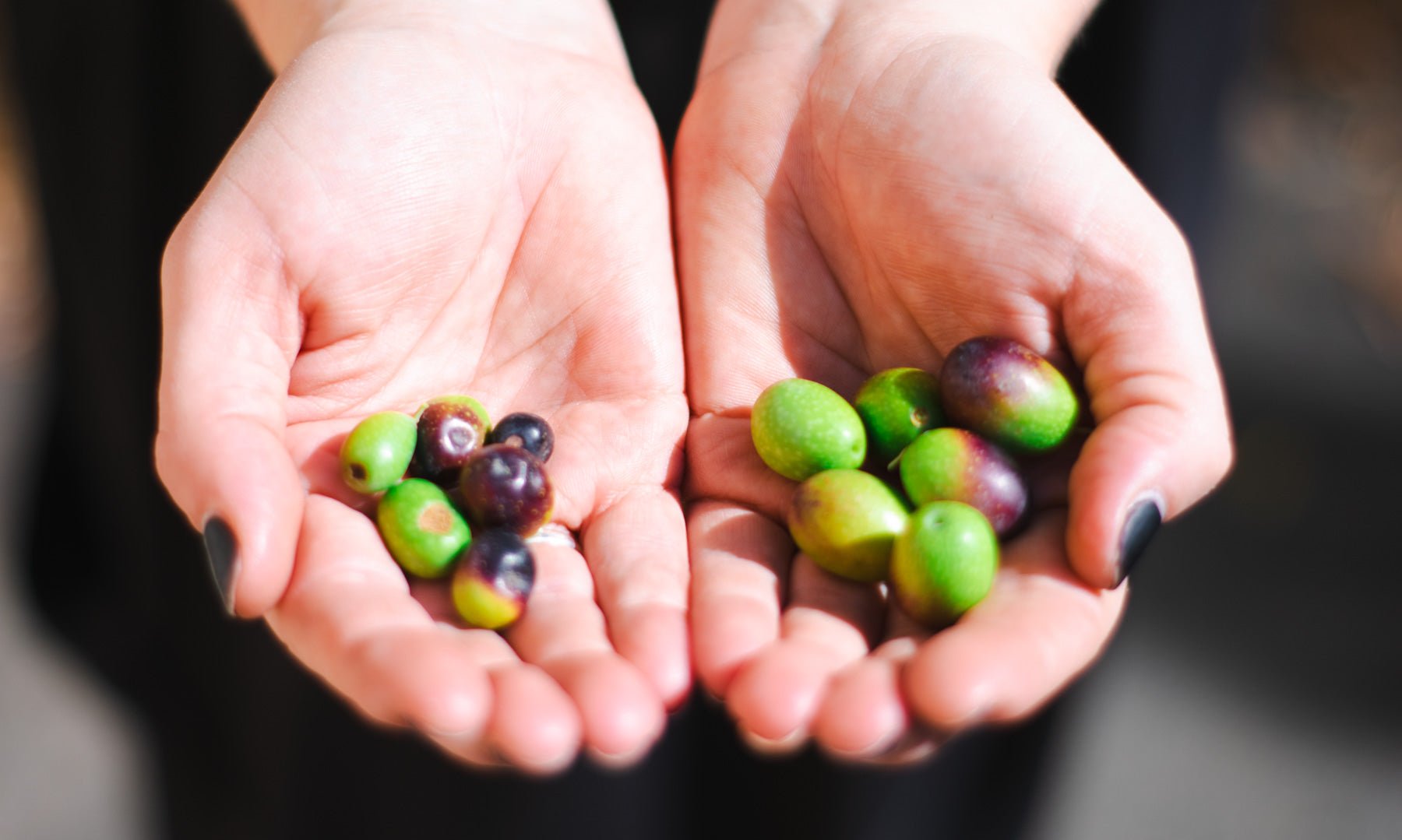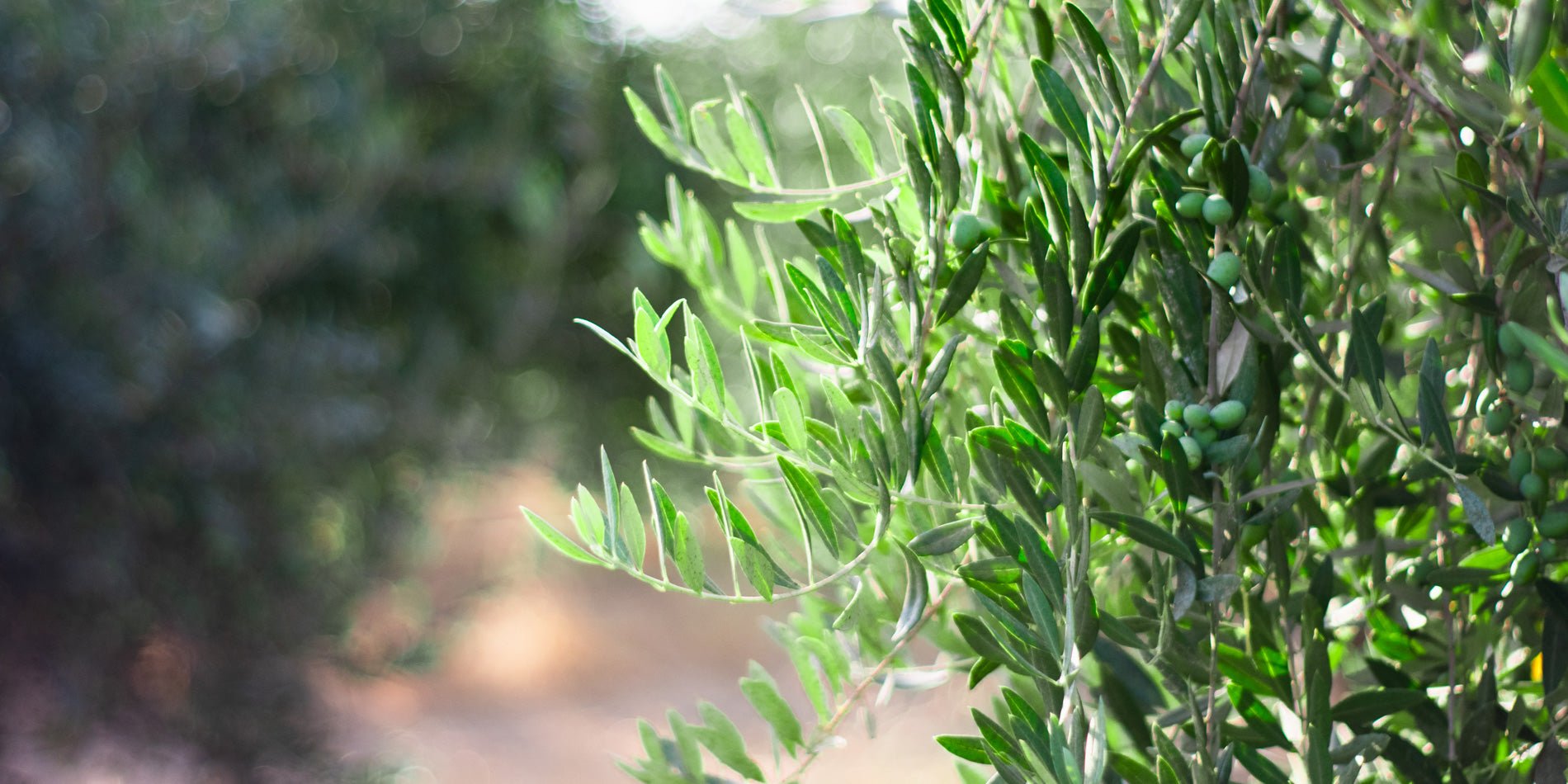Is Olive Oil A Seed Oil
Short answer: no. Olive oil is not a seed oil, and that difference matters.
Why is olive oil unique compared to seed oils?
Cold pressed olive oil is produced by mechanically separating the flesh of the olive fruit. This process is fundamentally distinct from seed oils, which are extracted from seeds such as soybean, canola, sunflower, and corn. Whereas seed oils usually need chemical extraction at high heat, olive oil is merely fruit juice. You crush the fruit, and you get oil out. Individuals who have personally ground up olives understand the ease and gentleness of this process.
Many tend to group olive oil with seed oils under the generic term "vegetable oil". Olive oil, like coconut oil, avocado oil, and palm oil, are made from the fatty flesh of fruits (all of which tend to be rather good choices, nutritionally speaking). The distinction between these fruit oils and the much denigrated “seed” oils is more than a matter of technicality, but it deserves a bit more exploration.
But Are Seed Oils Actually Bad For You?
This is a touchy topic, and as an olive grower, I have a vested interest in promoting an narrative that seed oils are bad for you, or even *gasp*, toxic, but the reality is a little more complex.
First and foremost, seed oils are not toxic - that’s a lie propagated by shirtless gymbro influencers for likes and views. In fact, the term seed oil is kind of a bogus term. Many seed oils do contain elevated levels of omega six fatty acids (which are linked to inflammation, obesity, heart, disease, and other metabolic disorders). However, canola oil, which draws so much hate from said influencer, has one of the best ratios of omega 6:3 of any fat source. I proudly keep a bottle of good, organic canola oil in my kitchen next to our EVOO. Not all dishes call for the expressive flavor of our organic, extra virgin olive oil and this oil is a great inclusion in a heart healthy diet.
But most other “seed” oils, like corn, soy, etc. do contain elevated levels of these (essential) fatty acids and I do try to avoid these oils where possible. That being said, studies have consistently shown that these oils are quite safe to consume in moderation. At the end of the day, that’s probably the most important part of the healthy healthy diet – moderation, as well as including lots of plant based whole foods, like vegetables, fruits, beans, nuts, etc.
There are many people who hold up current nutrition guidelines and recommendations from government agencies and NGOs as a driver of many of the poor health outcomes we see in the developed world. But here’s the thing: most people don’t actually follow these recommendations and at the end of the day in a world where calories are cheap but nutrition is hard to come by, it’s worth considering that the people who study health and nutrition for living are probably worth listening to.
How Are Seed Oils Processed Compared to Olive Oil?
Most seed oils have an industrial production process: solvents, high heat, and refining processes that can remove nutrients and introduce byproducts. Olive oil, especially extra virgin olive oil, is mechanically pressed at low temperatures. No chemical solvents. No deodorizing. Just clean, careful processing to preserve natural flavor compounds and polyphenols.
That's a major reason why olive oil has a distinct nutritional profile, and why it's so highly valued in traditional diets.

Nutritional Differences: Olive Oil and Seed Oil
Olive oil is rich in monounsaturated fats, which are linked to heart health for a couple of key reasons. First, they are more stable to oxidation than polyunsaturated fatty acids. This is important because one of the aspects of fatty acids and health is their ability to resist oxidation. In storage or processing, it’s common for some of the fatty acids in our foods to become oxidized, forming peroxides and aldehydes, which can damage cells, proteins, DNA, and can cause inflammation. Monounsaturated fatty acids are much more resistant to oxidation than polyunsaturated fatty acids, which are found in higher amounts in seed oils.
Additionally, olive oil contains low levels of saturated fatty acids, which can be problematic in excess. The denigration of saturated fats is sort of a “old school“ interpretation. It turns out that consuming saturated fats – in moderation – can be perfectly fine and they only really become a problem except when dealing with chronic inflammation, or blood sugar levels/cholesterol levels are out of balance.
Olive oil also carries bioactive compounds that can reduce inflammation and enhance metabolic health. In Olive Oil, these bioactive compounds are known as “polyphenols“. With seed oils, and especially highly refined ones, you're getting a much different product, both chemically and nutritionally.
In contrast, vegetable or seed oils are often refined, with flavor, color, and personality stripped away. They tend to be high in polyunsaturated fatty acids, which are essential to our health in small quantities, but potentially harmful in excess, or, as is often the case, when they are allowed to become oxidized.
Why It Matters in the Kitchen
Olive oil provides flavor. Sauté, finish a dish, dress a salad, it adds depth- grassy, fruity, peppery, bitter. That flavor is reliant upon the variety of olive, how ripe the fruit was, and how it was processed. Seed oils, however, are designed to disappear.
If you are dealing with a high-polyphenol early harvest olive oil, it is not just a fat, it is a seasoning in and of itself.
We love using our Olive Oil on vegetables in dressings and drizzled over right lively soups. You’re looking to learn how to use olive oil and cooking. You can check out some of our Olive Oil Recipes.

Is Olive Oil a Seed Oil?
No, not even close. It is derived from the olive tree fruit, not a seed. It is produced without any chemical process. Plus, it offers something completely different, flavor-wise and health-wise, to the table.
Although these refined vegetable oils aren’t something to be afraid of, we do like to reduce the use of them in our foods. So if you're going to cut back on seed oils yet still require an everyday fat in the kitchen, olive oil isn't just a substitute. It's in a class by itself.






